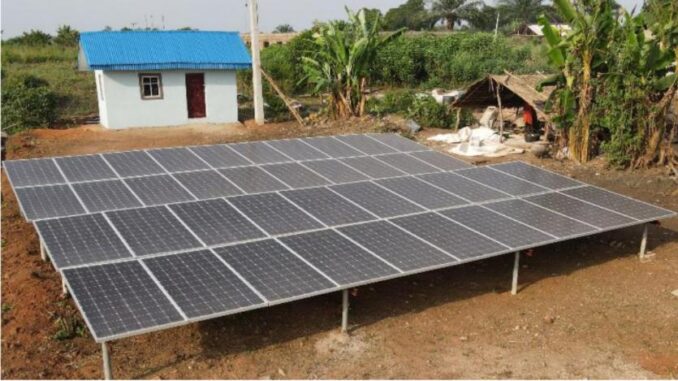
Nigeria is usually Africa’s largest oil producer, with an output of almost 1mn barrels per day, most of which is consumed by an energy-hungry economy that needs fuel for industries, transport and offices. And this reliance on oil has been exacerbated by a chronic shortage of electricity in most parts. About 43 per cent of Nigeria’s almost 200mn people lack access to grid electricity, especially in rural areas. Meanwhile, many of those who are connected to the grid are often left in the dark for days — or even years, in extreme cases — because of power supply problems that successive governments have left unsolved. In many urban centres, businesses and households are forced to resort to generators, which increase the demand for petrol and diesel. However, this energy crisis is now powering a different kind of innovation in Nigeria, says Ifeoma Malo, chief executive of Clean Technology Hub, a renewable energy research institute. She points to government regulations designed to encourage investment in solar mini-grids that can supply electricity to remote areas. “There has been a focus on getting electricity to rural communities,” says Malo. “And this is where a lot of investors in the solar mini-grid sector have come from and even a lot of renewable energy technologies. We’ve seen investment in wind too.”
The investments have typically been in the form of grants from multilateral organisations, such as the World Bank and philanthropic foundations. But industry experts say there has been a shift from solely grant-based investments to a hybrid model of grants and investments, such as loans on favourable terms. In 2018, the World Bank provided a $350mn concessionary loan to Nigeria’s Rural Electrification Agency (REA) for solar off-grid projects. Malo credits Damilola Ogunbiyi, who served as managing director of the REA from 2017 to 2019, for quickening the pace of investments in the rural electrification programme. Private capital has also shown an interest in Nigeria’s renewable sector, with some significant deals being completed. Last year, oil major Shell acquired Daystar Power Group, a solar power provider, as part of its efforts to move into cleaner energy.
Solar is regarded as a good entry point for would-be investors in renewables in Nigeria, since making electricity accessible, and affordable, remains a massive challenge. But Malo notes that local investors are not as active as their international counterparts because many worry that good returns will take too long to appear. The renewable energy sector, she says, needs “patient capital” that is willing to invest long-term in projects where profits may need more time to materialise. A further factor for investors to consider is the lack of security that pervades much of Nigeria, particularly in the north. Since most of the areas that require support are in rural, last-mile and northern communities, investors have been forced to pull their funds and contend with stranded assets in areas of high volatility.



